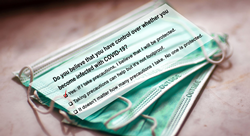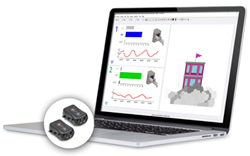
Our Summer Training Institute is a rewarding opportunity for mental health professionals and we’re grateful for the expert lineup we have planned for this year’s workshop series in conjunction with the American Board of Police and Public Safety Psychology.
PALO ALTO, Calif. (PRWEB)
April 14, 2020
CONCEPT Continuing Professional Studies at Palo Alto University (PAU) will host virtual workshops for its Summer Training Institute on Police and Public Safety Psychology due to the COVID-19 pandemic. This series of workshops for mental health and allied professionals allows participants to receive specialty training on police and public safety psychology topics from the safety and convenience of their own homes while earning live continuing education credit. All workshops will be held virtually—online in real-time—June 15-19, 2020.
Summer Training Institute is an annual workshop series offering continuing education (CE) credits for psychologists, clinical social workers and counselors. Workshops are led by internationally renowned experts in their fields. The 2020 series offers online professional training focused on police and public safety psychology and is ideal for mental health professionals who seek board certification in this discipline or want to add it as a specialty to their practice. Participants will learn about evidence-based practices in police and public safety psychology that demonstrate useful research outcomes and real-world applications.
Example courses include Evaluations of Police Suitability and Fitness for Duty, Ethical Dilemmas and Complex Relationships in Police & Public Safety Psychology and Wellness Resiliency and Suicide Prevention Practices in Police and Public Safety Psychology. Participants can select as few as one and up to five professional online day-long training workshops, which are approved for continuing education credit by NBCC, CPA, APA and ASWB.
“Our Summer Training Institute is a rewarding opportunity for mental health professionals,” said Patricia Zapf, Vice President of CONCEPT Continuing and Professional Studies at Palo Alto University, “and we’re grateful for the expert lineup we have planned for this year’s workshop series in conjunction with the American Board of Police and Public Safety Psychology.”
The online training format ensures that professionals can receive the CE units they need to maintain licensure despite the uncertainties surrounding the COVID-19 pandemic. Participants will receive live CE credit and will be able to communicate in real-time with presenters and other participants by using their cameras and microphones to share questions or comments.
Mental health professionals interested in attending the Summer Training Institute are encouraged to sign up online at concept.paloaltou.edu or call 650-433-3899 for more information. Prospective participants may also mail inquiries to CONCEPT Continuing and Professional Studies at Palo Alto University, 1791 Arastradero Rd, Palo Alto, Calif. 94304.
CONCEPT Continuing and Professional Studies at Palo Alto University in Palo Alto, Calif. provides mental health professionals with continuing education opportunities that help them increase their skills, deepen their knowledge and gain practical experience to advance their careers. Professional training programs are offered for individuals and groups in a number of convenient formats, and classes can be taken individually or bundled for specialization or board certification.
Share article on social media or email:














